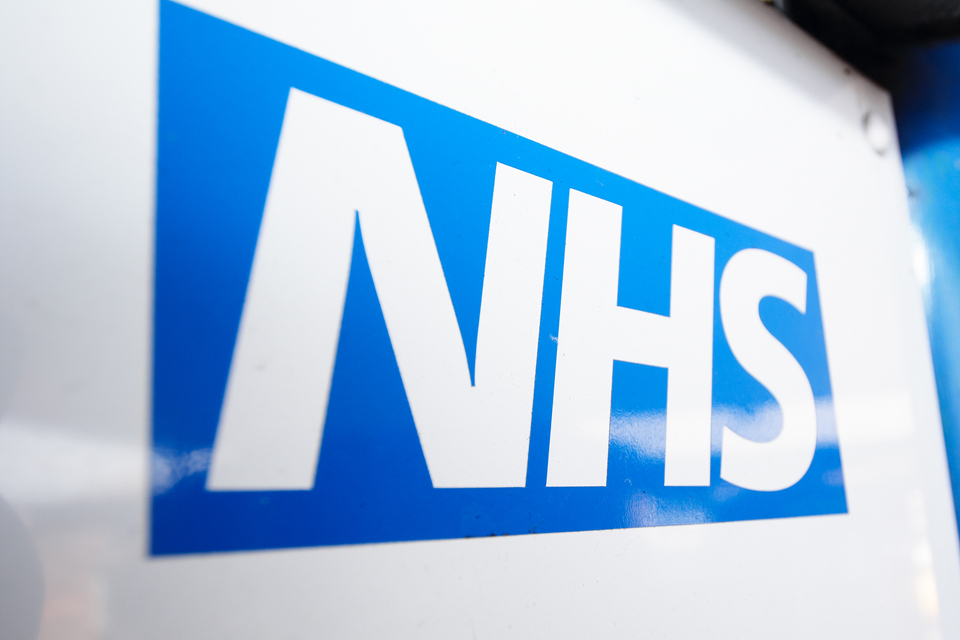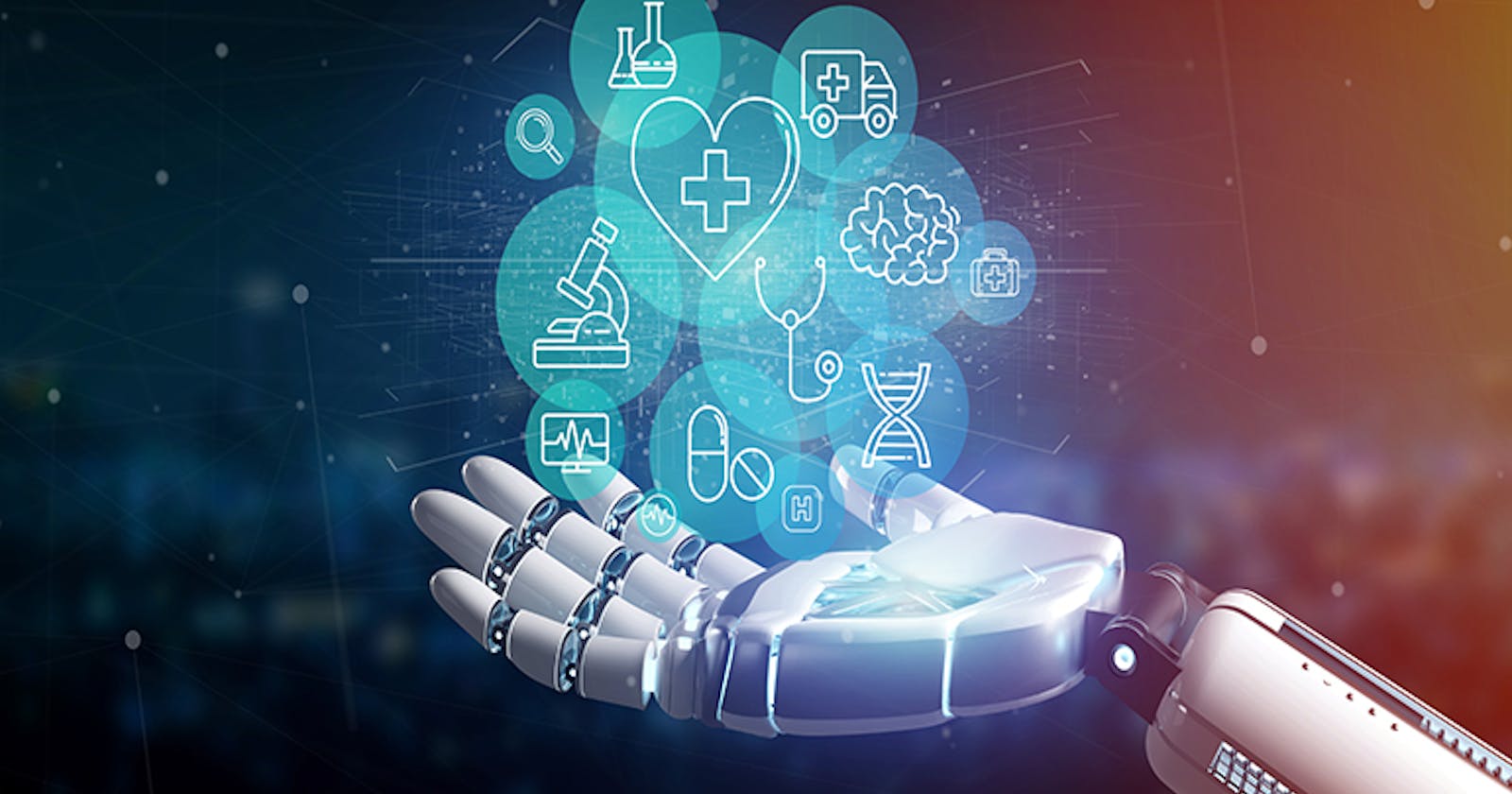AI in Healthcare: How Artificial Intelligence is Transforming the Medical World
Artificial intelligence has the potential to prevent disease
My name is dr. Stylianos Kampakis, I’m a data scientist, statistician, and blockchain expert with a mission to educate the public about the wonderful capabilities of technologies like AI, Data Science, and DLT. These technologies have the potential to transform the world, the economy, and our lives. However, there is too much misinformation around tech, and so most people are just confused about what is true and what is not. Whether you are a CEO, an entrepreneur, or just an enthusiast, this article helps you separate reality from hype.
Artificial intelligence has the potential to prevent disease
:format(webp)/cdn.vox-cdn.com/uploads/chorus_asset/file/6103137/dmh.0.png)
I'd like to discuss about anew story that I saw a few days ago. More specifically, the Chief of Health for Google Deep Mind, dr. Dominic King. He gave a talk at the Royal Society and the Academy of Medical Sciences. And basically the opinion he expressed was that artificial intelligence has the potential to prevent disease. And he also said that technology is improving an exponential rate and that in the near future we're going to see lots of improvements. He didn't really give many details about the technology. It was more of a general presentation, more of a general discussion. But this opinion essentially captures what Google is after for the next few years. And I think not only Google and many other companies.
We're talking about a world where algorithms can predict many diseases for the next place, but also algorithms can be used in order to diagnose diseases in places, in areas where doctors might not be easily available. And for me, something very important is not the technology itself, but also how the technology is going to influence not just the healthcare system on a worldwide level, but also the economy.
Could machine learning models become better than most doctors..?
![Homo deus. Scurtă istorie a viitorului Yuval Noah Harari [1]](https://gomagcdn.ro/domains/cartidesuflet.ro/files/product/large/homo-deus-44-6090.jpg)
Interestingly enough, I was reading recently Homo Deus Yuval Harari's book about the future of humanity, and he also mentioned health care. And basically what Harare is saying is that at some point he believes, and I mean, I agree with his opinion, and I think most machine learning specialists would agree with that as well, that for many conditions, the accuracy of machine learning models could become better than most doctors.
And when you think about this and then you think that there might be a possibility for many conditions to service diagnosis through a smart phone or some other mobile device, then you get something pretty amazing. But at the same time, you're going to need a different type of doctor with minimal diagnosis taking place through an algorithm. You're still going to need nurses, but doctors might have to focus on other things, like supporting the patients for example.
The internet of medical things

Some other transformations that we're going to see in the future are the internet of medical things. So we're very likely to see the integration of medical devices with the Internet and with each other in order to constantly monitor patients and predict outcomes. And at the same time, I think precision medicine is closely related to this trend. And precision medicine is essentially another term for personalized care. So using precision medicine principles, we will be able to predict how someone is going to respond to treatment based on their genes, based on their lifestyle, et cetera, and then adapt the treatment accordingly.
Machine learning is driving personalization
Much like we see in other spaces like retail, where machine learning is driving personalization, all the same principles are also going to apply in health care. That being said, data is a huge issue in this case and the Deep Mind was involved in a scandal with the NHS in the United Kingdom.
And this is one of the cases which demonstrates the importance of regulation, but also sound regulation, because where we currently edit, at least in Europe, is we see a lot of paranoia about how our data is being used by big corporations, by this, by that, and there's lots of overprotecting of the data.
How the data can be accessed safely?
However, there's not so much talk as to how the data can be accessed safely in order to create new applications, in order to create new products. And I've talked about this problem in the past in other podcasts and I believe that maybe blockchain technology is one such technology which could actually help us with this. Blockchain is revolutionizing many industries, from finance, to retail and healthcare is no exception.
Things like IPFS, the Ocean Protocol, a Constellation network might be able to help us monetize our data, our personal health data, while at the same time the data is being used for research. But it is also anonymized and we can keep track of where and how it's being used, but no such solution has been implemented at a large scale.
At least I'm not aware of any national health system saying that, yeah, we're going to use IPFS in order to track how patient data is being used. In any case, there's a lot of money to be made in this space and we're going to see many things being disrupted in the near future.
Healthcare AI startups
In 2019, there were about $4 billion worldwide that were invested in healthcare AI startups. And I think this clearly demonstrates where this market is going, where this industry is going. So it's not just Deep Mind or Google that believe this. It's not only me who's saying this, investors are also saying that, yes, we believe that AI is going to revolutionize healthcare. And I believe it's also going to be the convergence of different technologies like Internet of Things or Blockchain that is going to have an even larger impact in healthcare.
Economic disruption
Now, what this world is going to look like, I just mentioned, like Internet of Medical Things, Blockchain, etc. I also mentioned that there's going to be economic disruption, so I stuck by these opinions. But then again, many of those things are speculations and these changes are not going to take place overnight.
Yeah, so what we're going to observe probably is doctors being like medical services, not doctors being more easily accessible, maybe for people who are in areas without doctors or for people who find it difficult to access doctors for other issues, like mobility issues. But slowly we'll start seeing some of those technologies being implemented by the NHS and other medical systems and the NHS, even though it's a very old and slow moving system and any tech entrepreneur who has tried to work with NHS knows this, it's also very innovative.
So the NHS is also investing in AI.

There's a fund of £250,000,000 for artificial intelligence in the NHS, and I believe this is done partially because the NHS knows that AI might be the only way through which healthcare systems can actually solve many other problems in the future.
So when you have a doctor strategist and you just find it so difficult to fill in doctor positions, maybe having an AI doctor is a good solution.
So the future looks very exciting if you're in this area, and it's definitely an area I'm also going to be keeping an eye on.
One of the reasons being that I have also, and I still am to some extent, working in this area. I've advised startups in sleep, tech in dementia.
I've also worked in sports analytics in creating predictive models for football injuries and recovery after injuries. So I'm very curious to see where we're going to be in the next few years. So let me know what you think. I hope you enjoyed this article.
